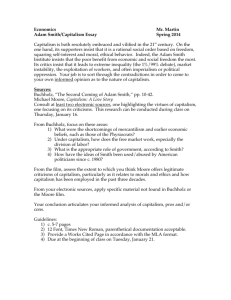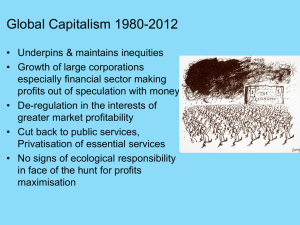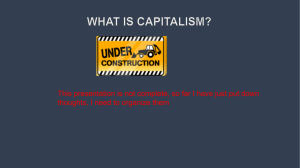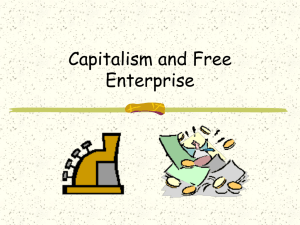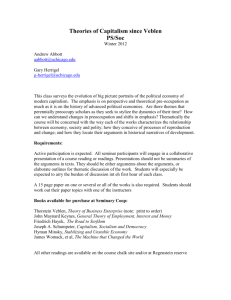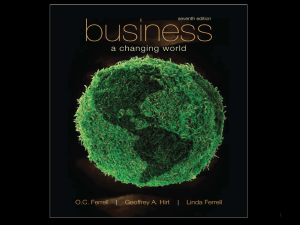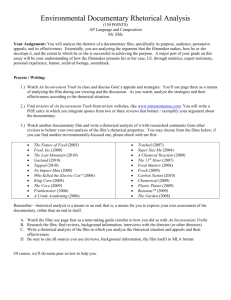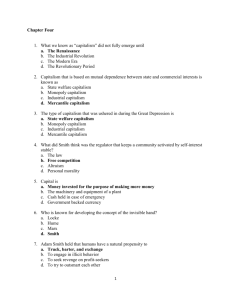capitalism rhetorical analysis - Engl-1102-zant
advertisement
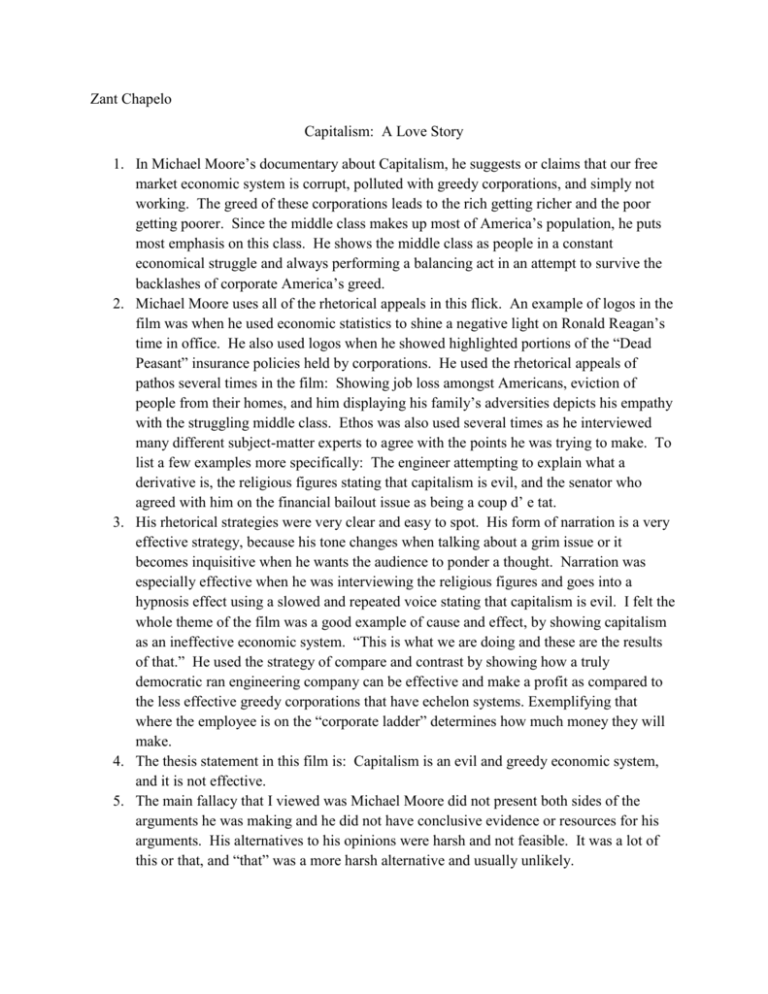
Zant Chapelo Capitalism: A Love Story 1. In Michael Moore’s documentary about Capitalism, he suggests or claims that our free market economic system is corrupt, polluted with greedy corporations, and simply not working. The greed of these corporations leads to the rich getting richer and the poor getting poorer. Since the middle class makes up most of America’s population, he puts most emphasis on this class. He shows the middle class as people in a constant economical struggle and always performing a balancing act in an attempt to survive the backlashes of corporate America’s greed. 2. Michael Moore uses all of the rhetorical appeals in this flick. An example of logos in the film was when he used economic statistics to shine a negative light on Ronald Reagan’s time in office. He also used logos when he showed highlighted portions of the “Dead Peasant” insurance policies held by corporations. He used the rhetorical appeals of pathos several times in the film: Showing job loss amongst Americans, eviction of people from their homes, and him displaying his family’s adversities depicts his empathy with the struggling middle class. Ethos was also used several times as he interviewed many different subject-matter experts to agree with the points he was trying to make. To list a few examples more specifically: The engineer attempting to explain what a derivative is, the religious figures stating that capitalism is evil, and the senator who agreed with him on the financial bailout issue as being a coup d’ e tat. 3. His rhetorical strategies were very clear and easy to spot. His form of narration is a very effective strategy, because his tone changes when talking about a grim issue or it becomes inquisitive when he wants the audience to ponder a thought. Narration was especially effective when he was interviewing the religious figures and goes into a hypnosis effect using a slowed and repeated voice stating that capitalism is evil. I felt the whole theme of the film was a good example of cause and effect, by showing capitalism as an ineffective economic system. “This is what we are doing and these are the results of that.” He used the strategy of compare and contrast by showing how a truly democratic ran engineering company can be effective and make a profit as compared to the less effective greedy corporations that have echelon systems. Exemplifying that where the employee is on the “corporate ladder” determines how much money they will make. 4. The thesis statement in this film is: Capitalism is an evil and greedy economic system, and it is not effective. 5. The main fallacy that I viewed was Michael Moore did not present both sides of the arguments he was making and he did not have conclusive evidence or resources for his arguments. His alternatives to his opinions were harsh and not feasible. It was a lot of this or that, and “that” was a more harsh alternative and usually unlikely. 6. The film was very convincing in the sense that he presented his arguments very well. I would say that Michael Moore effectively used most rhetorical strategies and appeals. He is a master of rhetoric and has devised well-made persuasive documentaries. He brought up some very interesting points that are definitely debatable; but, I still don’t agree with everything he says.
